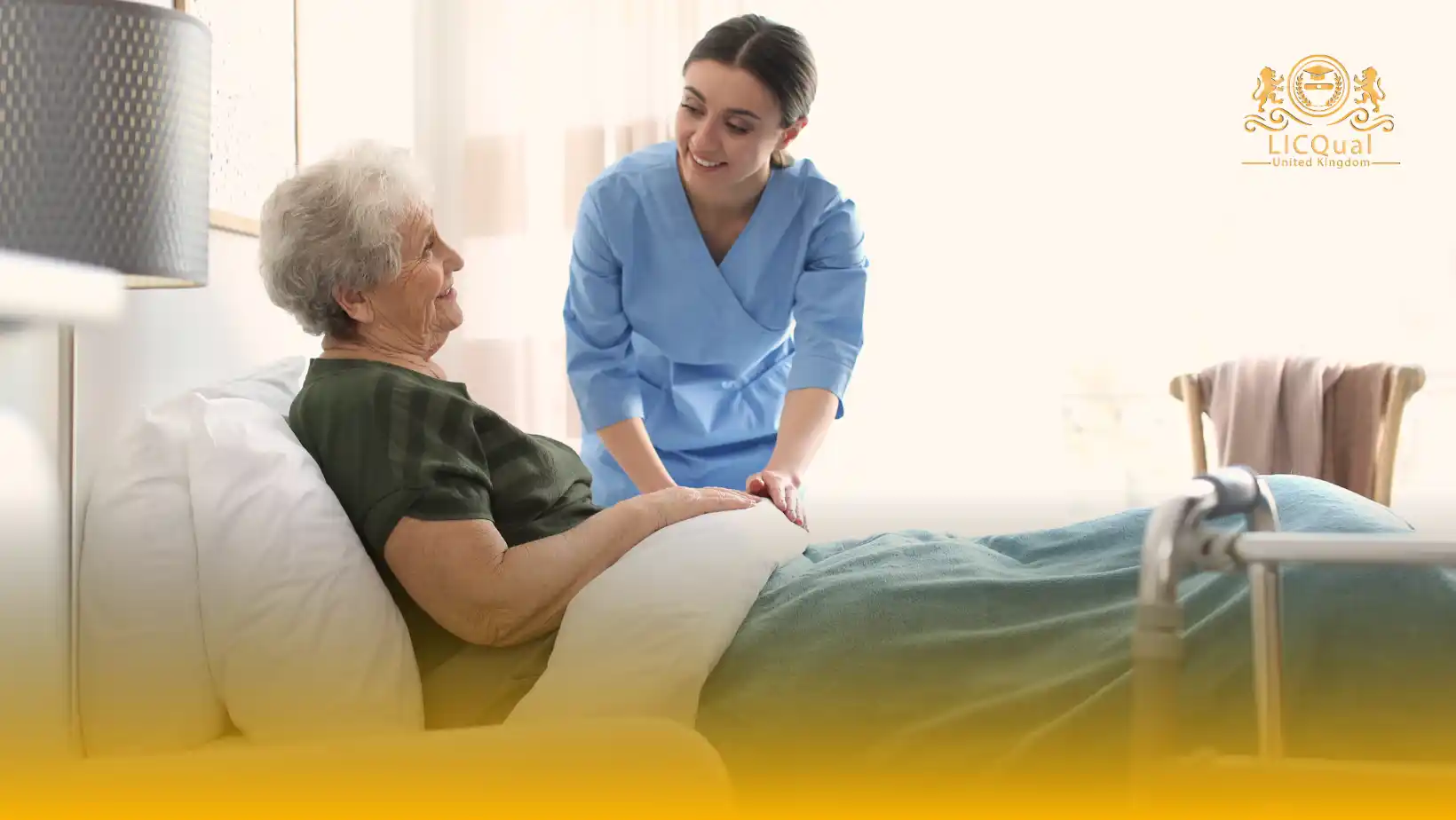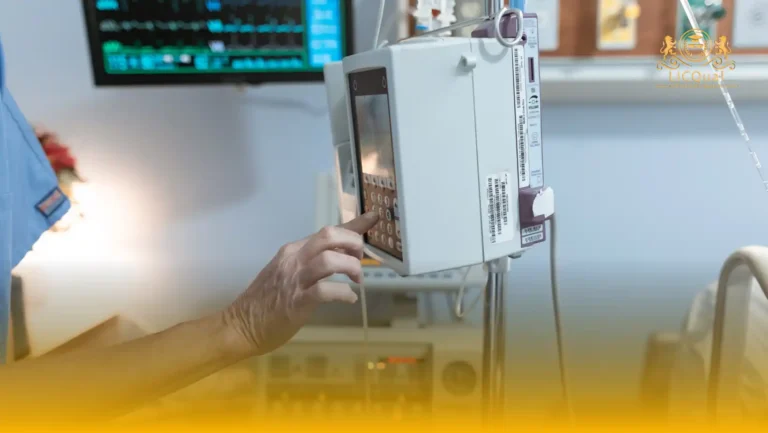The LICQual Level 3 Certificate in Geriatric Medicine (Cert GM) is a specialised qualification designed for healthcare professionals who are committed to advancing their expertise in the field of elderly care. This programme is not intended for beginners but is tailored for individuals already working within healthcare who wish to strengthen their career prospects, broaden their clinical knowledge, and enhance their Continuing Professional Development (CPD).
With populations ageing worldwide, the demand for skilled professionals in geriatric medicine continues to grow. This course equips learners with an in-depth understanding of age-related health conditions, treatment approaches, and patient-centred care strategies. By completing this qualification, learners will gain the confidence and competence to deliver high-quality care to older patients while contributing to improved standards within healthcare settings.
Centres delivering the LICQual Level 3 Certificate in Geriatric Medicine must demonstrate a commitment to excellence. This includes employing competent and qualified staff with relevant industry expertise and ensuring the availability of all essential learning materials and resources. Such measures are vital in maintaining the integrity of the qualification and ensuring that learners receive the best possible training experience.
Ultimately, this course supports learners in building advanced knowledge and practical skills that directly enhance their professional effectiveness, opening opportunities for progression in clinical roles and leadership within the healthcare sector.
Course Overview
Qualification Title
LICQual Level 3 Certificate in Geriatric Medicine (Cert GM)
Total Units
6
Total Credits
24
GLH
120
Qualification #
LICQ2200846
Qualification Specification
To enroll in the LICQual Level 3 Certificate in Geriatric Medicine (Cert GM), applicants must meet the following criteria:
|
Qualification# |
Unit Title |
Credits |
GLH |
|---|---|---|---|
|
LICQ2200846-1 |
Fundamentals of Geriatric Medicine |
4 |
20 |
|
LICQ2200846-2 |
Common Age-Related Diseases and Conditions |
4 |
20 |
|
LICQ2200846-3 |
Pharmacology and Medication Management in Older Adults |
4 |
20 |
|
LICQ2200846-4 |
Nutrition, Rehabilitation, and Lifestyle Management |
4 |
20 |
|
LICQ2200846-5 |
Ethical, Legal, and Professional Issues in Geriatric Care |
4 |
20 |
|
LICQ2200846-6 |
Integrated Care and Support Systems for Older People |
4 |
20 |
By the end of this course, learners will be able to:
Unit 1: Fundamentals of Geriatric Medicine
Learning Outcomes:
- Understand the biological, psychological, and social aspects of ageing.
- Identify normal physiological changes associated with ageing.
- Explain the importance of holistic, person-centred approaches in geriatric care.
- Apply knowledge of ageing theories to clinical practice.
Unit 2: Common Age-Related Diseases and Conditions
Learning Outcomes:
- Recognise common chronic and acute conditions affecting older adults.
- Analyse symptoms and risk factors associated with age-related diseases.
- Apply evidence-based approaches to the management of dementia, diabetes, osteoporosis, and cardiovascular diseases.
- Develop prevention strategies to minimise disease burden in older populations.
Unit 3: Pharmacology and Medication Management in Older Adults
Learning Outcomes:
- Demonstrate knowledge of pharmacokinetics and pharmacodynamics in older patients.
- Identify challenges of polypharmacy and potential drug interactions.
- Apply safe prescribing and medication management principles in geriatric care.
- Promote adherence strategies and patient safety in medication use.
Unit 4: Nutrition, Rehabilitation, and Lifestyle Management
Learning Outcomes:
- Explain the role of nutrition and diet in maintaining health in older adults.
- Assess the importance of physical activity and rehabilitation programmes in geriatric care.
- Develop lifestyle interventions to promote independence and quality of life.
- Evaluate strategies to prevent malnutrition, frailty, and mobility decline.
Unit 5: Ethical, Legal, and Professional Issues in Geriatric Care
Learning Outcomes:
- Analyse ethical dilemmas commonly faced in geriatric medicine.
- Understand legal frameworks, safeguarding policies, and patient rights.
- Apply principles of professional accountability and duty of care.
- Demonstrate ethical decision-making in complex geriatric cases.
Unit 6: Integrated Care and Support Systems for Older People
Learning Outcomes:
- Understand the importance of multidisciplinary collaboration in geriatric care.
- Evaluate models of integrated care and community support services.
- Develop strategies for effective coordination between healthcare professionals, patients, and families.
- Promote holistic care plans that improve independence and quality of life.
The LICQual Level 3 Certificate in Geriatric Medicine (Cert GM) is designed for healthcare professionals who want to specialize in elderly care and improve outcomes for aging populations. This Level 3 Geriatric Medicine certification is ideal for doctors, nurses, allied health practitioners, and even healthcare administrators who aim to strengthen their expertise in managing chronic conditions, dementia, and end‑of‑life care. With its globally recognized qualification and CPD‑accredited training, this program is perfect for anyone seeking a career‑boosting certification in geriatric medicine.
1. Doctors and Physicians in Elderly Care
- Gain advanced knowledge in chronic disease management for older adults
- Strengthen credentials with a globally recognized certification
- Improve patient outcomes through evidence‑based geriatric practice
- Learn ethical approaches to end‑of‑life and palliative care
- Boost career progression in hospitals, clinics, and community health
2. Registered Nurses and Care Home Staff
- Develop advanced skills in elderly patient monitoring and support
- Earn a CPD‑accredited qualification to enhance career growth
- Gain confidence in managing dementia and age‑related conditions
- Learn international best practices in geriatric nursing
- Increase employability in hospitals, nursing homes, and home care
3. Allied Health Professionals (Physiotherapists, Paramedics, etc.)
- Expand scope of practice with geriatric care competencies
- Learn rehabilitation and mobility support for elderly patients
- Improve patient safety and independence through tailored care
- Gain recognition with an industry‑approved qualification
- Enhance career mobility across healthcare sectors
4. Medical Students and Early‑Career Professionals
- Build a strong foundation in Geriatric Medicine training
- Gain a competitive edge in postgraduate applications
- Learn practical elderly care skills alongside theoretical knowledge
- Demonstrate commitment to professional development
- Position yourself for future roles in hospitals and aged‑care facilities
5. Public Health and Community Care Specialists
- Understand the impact of aging populations on healthcare systems
- Learn strategies for community‑based elderly care programs
- Strengthen skills in preventive and holistic geriatric care
- Support public health initiatives for older adults
- Enhance credibility in community and outreach roles
6. Healthcare Administrators and Educators
- Gain insights into the clinical demands of geriatric medicine
- Strengthen leadership in staff training and development
- Support institutional compliance with CPD requirements
- Understand international standards in elderly care delivery
- Enhance credibility as a healthcare trainer or manager
7. International Healthcare Professionals Seeking Recognition
- Earn a career‑boosting qualification recognized worldwide
- Align with global healthcare standards and protocols
- Improve employability in international hospitals and clinics
- Access flexible online learning suited to global professionals
- Demonstrate commitment to continuous professional growth
Centres delivering this qualification must meet high standards to ensure learners receive quality training and achieve successful outcomes. The following requirements must be in place:
- Qualified and Competent Staff: Centres must employ trainers, assessors, and internal verifiers with appropriate qualifications, industry knowledge, and experience in geriatric medicine and healthcare.
- Access to Learning Resources: Centres must provide learners with up-to-date course materials, textbooks, clinical guidelines, and digital resources to support effective learning.
- Appropriate Facilities: Training should take place in a suitable environment, including classrooms, skills labs, or healthcare practice settings that support interactive and practical learning.
- Assessment and Quality Assurance Systems: Robust systems for assessment, internal quality assurance, and record-keeping must be in place to maintain the integrity and credibility of the qualification.
- Learner Support Services: Centres must provide guidance and academic support to ensure learners can complete the course successfully, including pastoral support where necessary.
- Commitment to CPD: Teaching and assessing staff must actively engage in Continuing Professional Development (CPD) to remain current in healthcare and geriatric practices.
- Compliance with Standards: Centres must adhere to LICQual’s quality assurance policies, assessment requirements, and international standards for vocational healthcare training.
By fulfilling these requirements, centres can deliver the LICQual Level 3 Certificate in Geriatric Medicine (Cert GM) to the highest standard, ensuring that learners gain valuable skills and knowledge to advance their professional careers.
Assessment and Verification
All units within this qualification are subject to internal assessment by the approved centre and external verification by LICQual. The qualification follows a criterion-referenced assessment approach, ensuring that learners meet all specified learning outcomes.
To achieve a ‘Pass’ in any unit, learners must provide valid, sufficient, and authentic evidence demonstrating their attainment of all learning outcomes and compliance with the prescribed assessment criteria. The Assessor is responsible for evaluating the evidence and determining whether the learner has successfully met the required standards.
Assessors must maintain a clear and comprehensive audit trail, documenting the basis for their assessment decisions to ensure transparency, consistency, and compliance with quality assurance requirements.







